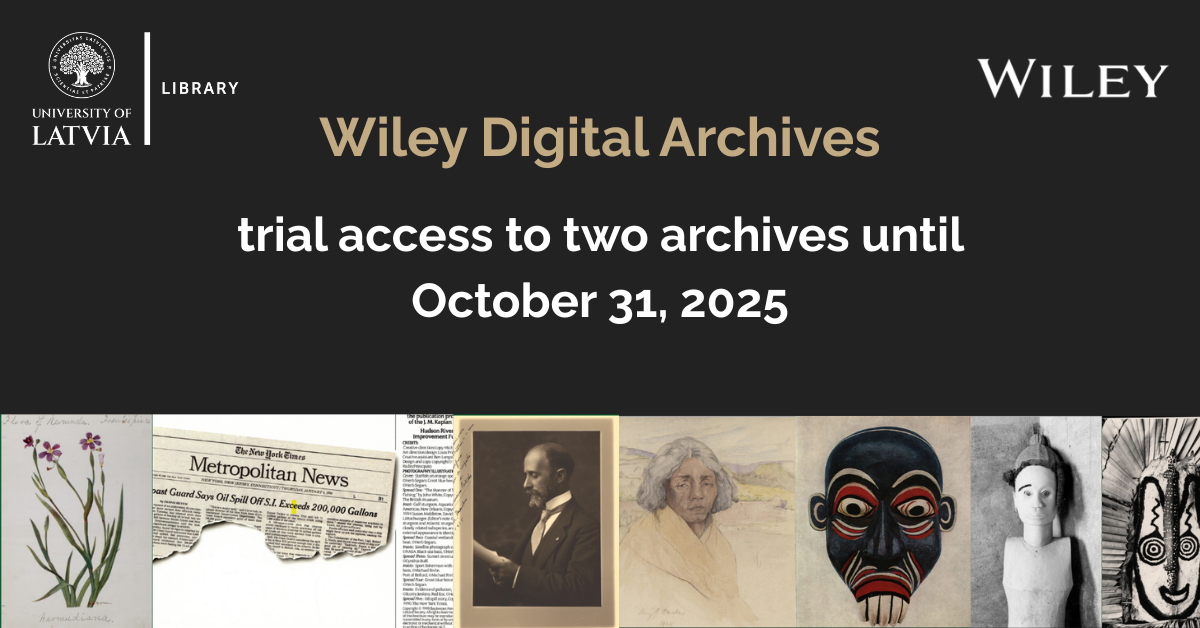
UL users are granted trial access to two Wiley Digital Archives primary-source collections – The Royal Anthropological Institute of Great Britain and Ireland and The New York Academy of Sciences.
On-campus access for both archives available HERE by going to “Other Archives”
Off-campus access for both archives available HERE by going to “Other Archives”
Wiley Digital Archives identifies, restores, digitizes and catalogs the archives of some of the world’s most influential academic and scientific societies and universities. Unique primary-source content is delivered on an advanced platform designed to power research, support teaching, and foster learning.
The collections contain primary source materials such as manuscripts, periodicals, maps, drawings, photographs, etc. The platform offers features such as Automatic Text Recognition (ATR), image customization, term analysis hub, place of publication browser, a photo and map explorer, etc. Please note that the trial version does not allow printing and downloading materials (including tables and Geotiff files).
Short platform explainer videos
An introductory Wiley Digital Archives online session will be held on 14th of October, 3pm. Please contact agnese.arabere@lu.lv or vtuome@wiley.com to get an invite.
The Royal Anthropological Institute of Great Britain and Ireland founded in 1871, is the world's longest-established scholarly association dedicated to the furtherance of anthropology (the study of humankind). The Institute’s archive contains nearly one million pieces of unique content, including research data, papers, fieldwork, drawings, correspondence, manuscripts, maps, pamphlets, periodicals and a wealth of previously uncatalogued material. The archive also includes a 150,000-image library of ethnographic photographs dating back to the 1860s.
Subjects and themes: anthropology, archeology, art history, ethnography, cultural studies, geography, linguistics, religion.
The New York Academy of Sciences was founded in 1817 as the Lyceum of Natural History in the City of New York. Throughout its history, the Academy has brought together extraordinary people, including Thomas Jefferson, Charles Darwin, Margaret Mead and Thomas Edison and made important contributions to solving societal problems. This work is continued today with more than 20,000 members across 100 countries.
The New York Academy of Sciences’ archive encapsulates the history and development of natural science, technology and modern biomedical sciences, and documents anti-intellectualist sentiments towards scientists. It includes chronicles of efforts by governments and corporations to influence research and records from many seminal Academy scientific events.
Subjects and themes: botany, chemistry, climate science, ecology, environmental studies, forestry, geosciences, Caribbean studies, North American studies, civil/human rights, education, medical research, natural sciences.
The UL Library invites you to express your opinion about the Wiley Digital Archives primary-source collections by sending feedback to info-bibl@lu.lv.

 CONFERENCE
CONFERENCE